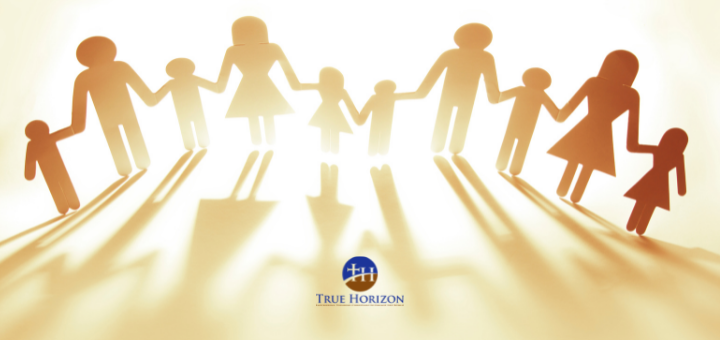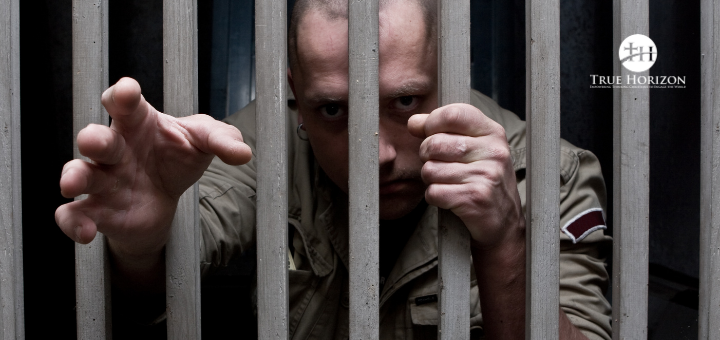Three Signs Of The Church’s Spiritual Disorientation
It is a scary thing to be disoriented. At best, it means you’re headed in the wrong direction. But if you’re flying airplanes, it means you have no reference to the ground. You can’t navigate. You may not even know which way is up. In other words, being disoriented is not just an annoyance. It’s dangerous. But there is something even more dangerous than being disoriented — and that is not knowing you’re disoriented. I hate to say this, but I believe many people in the church are becoming spiritually disoriented. And many of them don’t even have a clue.
Let me explain what I mean.
Spatial Disorientation
On the evening of July 16, 1999, John F. Kennedy, Jr. crashed his private airplane into the Atlantic Ocean near Martha’s Vineyard, Massachusetts. I remember that night well because I was the First Officer on a Delta Boeing 767 descending into New York’s LaGuardia Airport at exactly the same time.
The visibility over the water that evening was horrible. The haze, humidity, and sun angle combined to turn the sky around us into a giant, yellow-gray blob. There was no horizon. No way to tell which was up. Between us, the Captain and I had nearly 40 years of combined flight experience. Even so, we were uncomfortable. New York air traffic control was allowing airplanes to use visual flight rules. But we insisted on using instrument procedures for our approach and landing.
John Kennedy, Jr. had no business flying in weather conditions like that. He was not an experienced pilot. Sadly, the plane he was flying did have the instrumentation he needed to operate in those kinds of conditions. But Kennedy wasn’t trained to use it. An investigation of the accident revealed the cause. JFK, Jr. had “failed to maintain control of the airplane … as a result of spatial disorientation.”
Unable To Recover
Spatial disorientation occurs when a pilot loses his reference to the ground. With no visible horizon, his inner ear and eyes begin fighting with each other. They give him conflicting signals. He gets the sensation he’s turning when he is actually flying straight. What he sees and feels don’t match. Making the correction that feels right actually exacerbates his problem.
Experienced pilots know how to recognize the symptoms of spatial disorientation. When they do, they are trained to trust their flight instruments. A failure to do so can quickly become a matter of life and death.
Kennedy didn’t understand what was happening to him. Inexperienced pilots rarely do. By the time he realized something was wrong, it was too late. His lack of training doomed him. His attempts to correct the situation only made it worse. Within a matter of seconds, he was plunging toward the ocean in a “death spiral.”
It probably went something like this …
Three Signs Of Disorientation
There are three elements of spatial disorientation to be aware of:
- You can’t see the ground.
- Your sensations lie to you about your alignment with the world. You think everything is fine.
- When you realize something is wrong, your attempts to correct things make them worse.
Spiritual Disorientation
I share this story for a very specific reason. I believe that many in the church have become “spiritually disoriented.” They are flying through this life in a way very similar to the way JFK, Jr. was flying over Long Island Sound.
I don’t say this to be provocative. I say it because I have evidence to back it up.
Media research pollster George Barna makes a living studying the beliefs and behaviors of the Christian community. He has published several findings about how evangelical Christians think and act very much like the world around them. He also looks at their actual beliefs and attitudes. The parallels between spatial and spiritual disorientation are fascinating to see …
They Can’t See The Ground
What grounds the Christian worldview? What is our reference point? I submit that it is no different than what grounds reality itself.
The truth.
This is a topic for another discussion that I will engage more completely later. For now, let me say that for thousands of years, thinking humans have seen truth as an objective feature of the world. It is something external to us. We don’t invent it. We discover it. For that reason, truth is as real as the ground we walk on. And truth is what should ground our thinking.
But today, we have come to believe that truth is up to us to decide for ourselves. As one example, George Barna discovered that:
Only 59% of Christians said that there are moral truths that are unchanging, that truth is not relative to the circumstances
In other words, we have lost sight of what should ground our thinking. We have no firm reference to the truth.
They Think Everything Is Fine
No longer grounded in the truth, most Christians think and act just like the world around them. For example:
At the same time, this little nugget ought to jump out of Barna’s data and grabbed you by the throat:
92% of self-described evangelical Christians view themselves as being “deeply spiritual.”
We think and act pretty much like the world around us. But we overwhelmingly believe ourselves to be “deeply spiritual.” How is that possible?
Part of the answer lies in the fact that society has lured us into redefining what it means to be “spiritual.” We have dissected our heads from our hearts. We’ve let the culture convince us that the heart is the most important thing about us. Feelings and emotions guide us. When those feelings and emotions are positive, we are on the right track. Those who have perfected this search are considered society’s most “spiritual” people.
Their “Corrections” Make Things Worse
Once feelings and emotions replace truth as the most important point of reference, we use them as our primary means of engaging the world. In our efforts to avoid making people feel bad, we dodge the truth. Feelings become more important than reality itself.
Grace abounds, but truth is dying in the streets.
As an example, imagine an anorexic girl who is nothing but skin and bones. When she looks in the mirror, she thinks she is overweight. She diets and purges. Her weight continues to decline.
Would it be loving and kind of us to tell her she’s looking great? Should we encourage her to continue down the path she has chosen? After all, telling her she looks like death warmed over would certainly hurt her feelings.
Obviously not. We have a duty to tell her the truth, no matter how much it hurts her feelings. Playing along with her delusion would only make things worse. And it wouldn’t be loving. It would be dangerous.
One doesn’t have to think very hard to see the parallels going on in our culture with all forms of sin and rebellion. Yet we have prominent church leaders and spokesmen demanding that we do just that. But a church that avoids the truth by honoring feelings above truth is a church that has lost sight of the meaning of love.
Sometimes the most loving thing we can do is tell someone the truth.
Overcoming Spiritual Disorientation
The culture has infiltrated the church. As a result, the church is becoming more and more spiritually disoriented. Many prominent church leaders deny the core principles of our faith. They promote a disoriented Christianity that allows the culture to critique the church instead of leading a biblical critique of the culture. And too many in the church have accepted what they’re saying.
But there is a way to recover. Over the next few posts, I will talk about:
As always, I welcome your comments and questions about each of these topics.






The article on Spiritual disorientation was interesting but not clearly laid out or explained, in my opinion. I agree that many Church leaders have lost their way as in the case of Catholic Prelates who, willfully, covered up sexual abuse of children. Were they disoriented or were they merely protecting themselves or the image of the Institution they represented? They said one thing but did another. They were not properly grounded in the truth, I agree. But what is that truth if not Christ?
Hey Hugh,
I agree that there needs to be more to this discussion of “spiritual disorientation.” So, stick with me. As I mentioned at the end, I will get into how to properly ground our thinking and how to recognize a church leader who is promoting spiritual disorientation. I will also talk about the dangers of an “unbalanced spirituality,” and how to move toward spiritual “expertise.” Too much for one post.
But, if it’s any consolation, I also agree with your solution. We’re headed there next …
Thanks for your comment!
Thank you for this article and for the challenges you bring forward to us to rise to.
Regarding this one statement you made, I had different reaction. For the stats about worldview and spirituality, I don’t see a conflict.
Here’s your statement I’m referring to: “We think and act pretty much like the world around us. But we overwhelmingly believe ourselves to be “spiritual.” How is that possible?”
When I read those stats and see the 92% of us who claim to be “spiritual”, I believe it, even though it conflicts with the lack of biblical worldview. Spirituality is real, it is true, but that doesn’t exclusively mean being in line with God’s spirit. My thoughts about the stats is that a vast number of Christians are not in line with God’s spirit, but in line with the spirit of the world – truthfully spiritual, but the wrong “spiritual”. The world around us is spiritual. I know we use the phrase “world’s culture” when describing the negative influence within the church, but the reality is that behind the “culture” is a spirit, but not God’s spirit. It’s out to deceive, like you say, to disorient and make people think they are not deceived.
You wrapped up your article focusing on teachers and leadership, which was what I was thinking about while reading it – when the vast number of students in a class are failing, you must start to question the teacher. There is such a heavy burden and much accountability placed on leaders and teachers and they will to answer for leading people the wrong way. You don’t step into a role like thinking just about the honor, glory, and prestige – there’s much responsibility attached to it, in fact, it’s a matter of life or death.